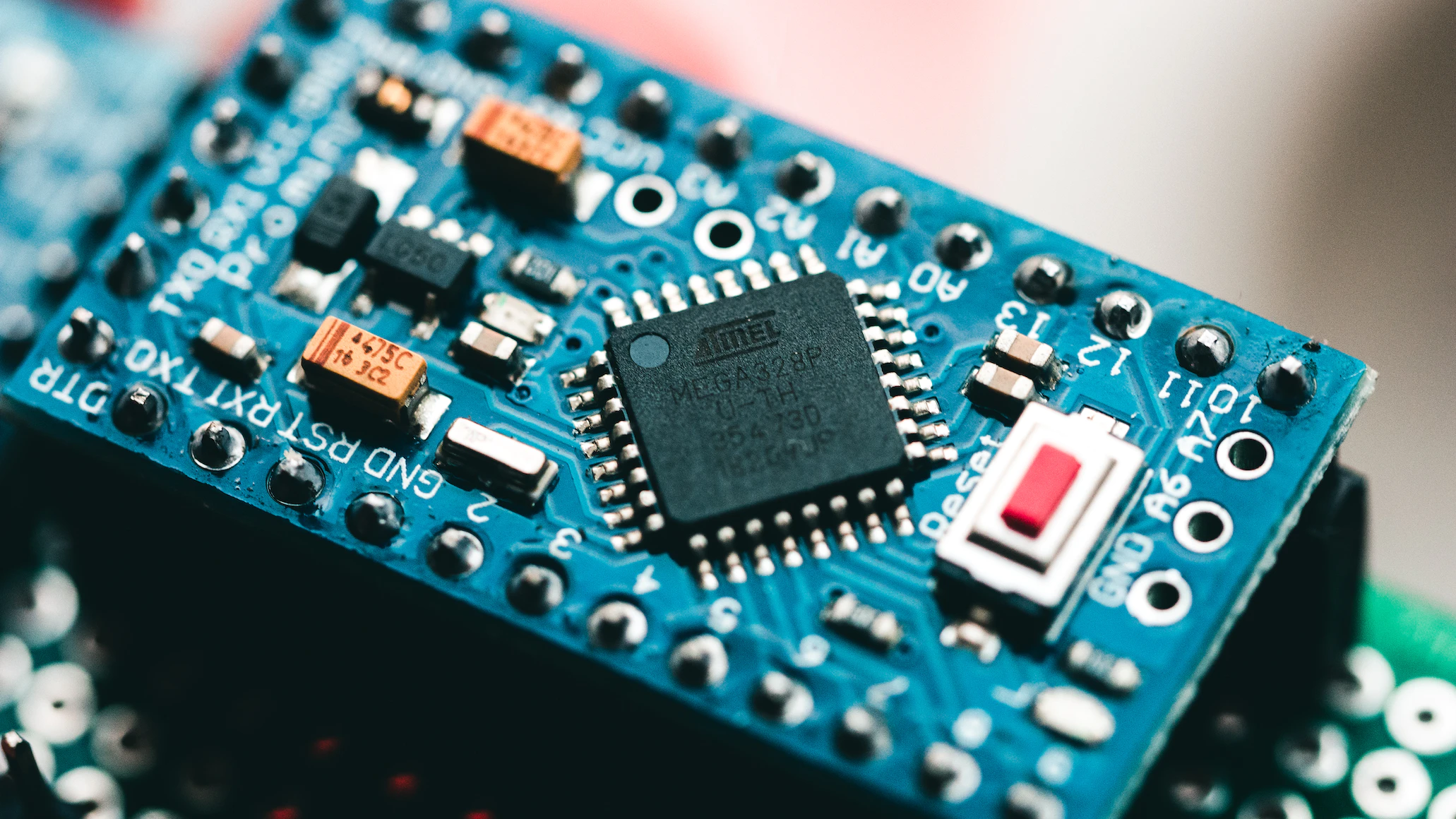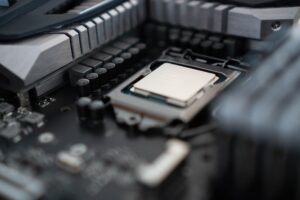Central Processing Unit (CPU) is the main processing component of a computer system. It is responsible for executing instructions and performing operations and is sometimes referred to as the “brain” of the computer. CPUs come in different form factors and are made up of a combination of transistors, capacitors, and other electronic components.
Understanding why CPUs generate heat is important for several reasons. For one, it helps us to understand the limitations of CPUs and how to improve their performance. Overheating is a common issue that can cause performance degradation, instability, and even permanent damage to the CPU. By understanding why CPUs generate heat, we can implement better cooling solutions and improve the reliability and longevity of our computer systems. Additionally, understanding heat generation in CPUs can also help to advance the development of new and more efficient computer systems.
The Physics of Heat Generation
Heat generation in CPUs is the result of the electronic and thermal processes involved in executing instructions and performing operations. CPUs are made up of millions of transistors that are constantly switching on and off, and this switching process consumes electrical energy, which is released as heat. Additionally, the electronic components within CPUs are tightly packed together, and this close proximity results in heat transfer between components, which further contributes to heat generation.
Understanding the relationship between power consumption and heat generation
The amount of heat generated by a CPU is directly proportional to the amount of power it consumes. The more power a CPU consumes, the more heat it will generate, and vice versa. This relationship is important to understand because it allows us to control heat generation by controlling the power consumption of the CPU. For example, reducing the clock speed of a CPU will reduce its power consumption, and therefore reduce the amount of heat it generates.
Factors Affecting Heat Generation
The amount of heat generated by a CPU can be influenced by a number of factors, including clock speed and voltage, processor architecture and technology, and manufacturing process and materials used. Understanding these factors can help us to optimize the performance of CPUs and improve their efficiency while reducing the amount of heat generated.
Consequences of Excessive Heat Generation
Performance Degradation
Excessive heat generation can lead to performance degradation in CPUs. When a CPU becomes too hot, it may reduce its clock speed or shut down completely to prevent damage. This reduction in clock speed results in a reduction in performance, as the CPU is not able to execute instructions as quickly.
Instability
Excessive heat can also cause instability in CPUs, leading to crashes, freezes, and other malfunctions. This can result in lost data and wasted time, as well as increased frustration and decreased productivity.
Permanent Damage
In extreme cases, excessive heat generation can cause permanent damage to the CPU, leading to a complete failure. This can be costly, as it may require the replacement of the entire CPU or even the entire computer system.
Importance of Effective Cooling
To prevent the consequences of excessive heat generation, it is important to implement effective cooling solutions. This may involve the use of cooling fans, heat sinks, and other cooling mechanisms, as well as proper ventilation and air circulation. By maintaining the temperature of the CPU within safe operating limits, we can ensure its reliability and longevity, and avoid the consequences of excessive heat generation.
Impact of Overclocking on Heat Generation
Overclocking involves increasing the clock speed of the CPU beyond its manufacturer-specified limits. This can lead to an increase in heat generation, as the CPU is executing instructions more quickly and using more power.
Increased Risk of Excessive
Heat Generation When a CPU is overclocked, it is more likely to generate excessive heat. This is because the increased clock speed results in increased power consumption and heat dissipation. If the cooling solutions are not adequate, the CPU may become overheated and suffer the consequences described in point III.
Importance of Proper Cooling for Overclocked CPUs
To prevent excessive heat generation and maintain stability when overclocking, it is crucial to implement proper cooling solutions. This may involve using high-performance cooling fans, liquid cooling systems, and other advanced cooling mechanisms. It is also important to monitor the temperature of the CPU and make adjustments as necessary to ensure that it stays within safe operating limits.
Risks of Overclocking
While overclocking can result in improved performance, it also introduces additional risk. If the cooling solutions are not adequate, the CPU may become overheated and suffer permanent damage. Additionally, overclocking may void the manufacturer’s warranty, and it is important to be aware of the potential consequences before proceeding with overclocking.
Final Thoughts
Overclocking can be an effective way to improve the performance of a CPU, but it also introduces additional risk. To avoid the consequences of excessive heat generation, it is important to implement proper cooling solutions and monitor the temperature of the CPU. While overclocking can result in improved performance, it is important to be aware of the potential consequences and weigh the risks against the benefits.
Conclusion
The main reasons behind CPU heat generation are the operation of transistors and other electrical components, as well as the conversion of electrical energy into thermal energy. The increase in clock speed through overclocking also contributes to heat generation.
Managing heat generation is crucial for the longevity and stability of a computer system. Excessive heat can cause permanent damage to the CPU, as well as other components, and may result in system instability and decreased performance.
Final Thoughts
CPU heat generation is a natural and inevitable part of the operation of a computer system. Understanding the reasons behind heat generation and taking steps to manage it can help to ensure the longevity and stability of the system. Whether through proper cooling solutions, monitoring temperature, or limiting overclocking, it is important to take steps to manage heat generation in order to protect the system and ensure optimal performance.
Frequently asked questions
Is CPU heating normal?
CPU heating is normal and can vary depending on the type of CPU and the activity of the computer. Generally, CPUs should heat up to around 40-50 degrees Celsius (104-122 degrees Fahrenheit) when idle and up to 70-90 degrees Celsius (158-194 degrees Fahrenheit) when under heavy load.
Heat is a normal part of the operation process for a CPU and is necessary for it to function properly. If the CPU heats up too much, it can cause overheating which can lead to permanent damage. To help prevent overheating, make sure the computer is in a well-ventilated area and use a cooling pad or fan to help regulate the temperature. Additionally, keep the computer clean and free of dust, as dust can cause the internal components to overheat. Overall, CPU heating is normal and necessary but make sure to monitor the temperature and take steps to prevent overheating.
Why does a CPU produce heat?
A CPU produces heat due to the electrical current passing through the many transistors and other components that make up the CPU. As the current passes through the components it creates resistance which in turn causes heat. This heat is then dissipated by a fan and/or heatsink to help maintain a safe temperature for the CPU to operate. The amount of heat produced depends on the amount of power being drawn by the CPU and how well it is cooled. When the CPU is running more intensive tasks it will draw more power and generate more heat, meaning the fan and heatsink will need to work harder to keep the CPU running at a safe temperature.
Does CPU heat affect FPS?
Yes, CPU heat can affect FPS. When the CPU is running hotter than normal, it can cause the processor to slow down, resulting in a lower FPS. This is because high temperatures can cause the processor to become unstable and throttle back its performance to avoid further damage.
Additionally, if the cooling system is not adequate, the processor can overheat and cause even more damage. To prevent this from happening, it is important to keep the CPU temperature within safe limits, as this will keep the processor running at optimal speeds and ensure the best possible performance.



![How to Stop CPU Throttling [Ultimate Guide] How to Stop CPU Throttling [Ultimate Guide]](https://thebestcpu.com/wp-content/uploads/2023/02/photo-1555617766-c94804975da3-300x200.webp)
![CPU Water Cooling: Is it Good? [Ultimate Guide] CPU Water Cooling: Is it Good? [Ultimate Guide]](https://thebestcpu.com/wp-content/uploads/2023/02/photo-1670751781907-d59be4c3e208-300x200.webp)